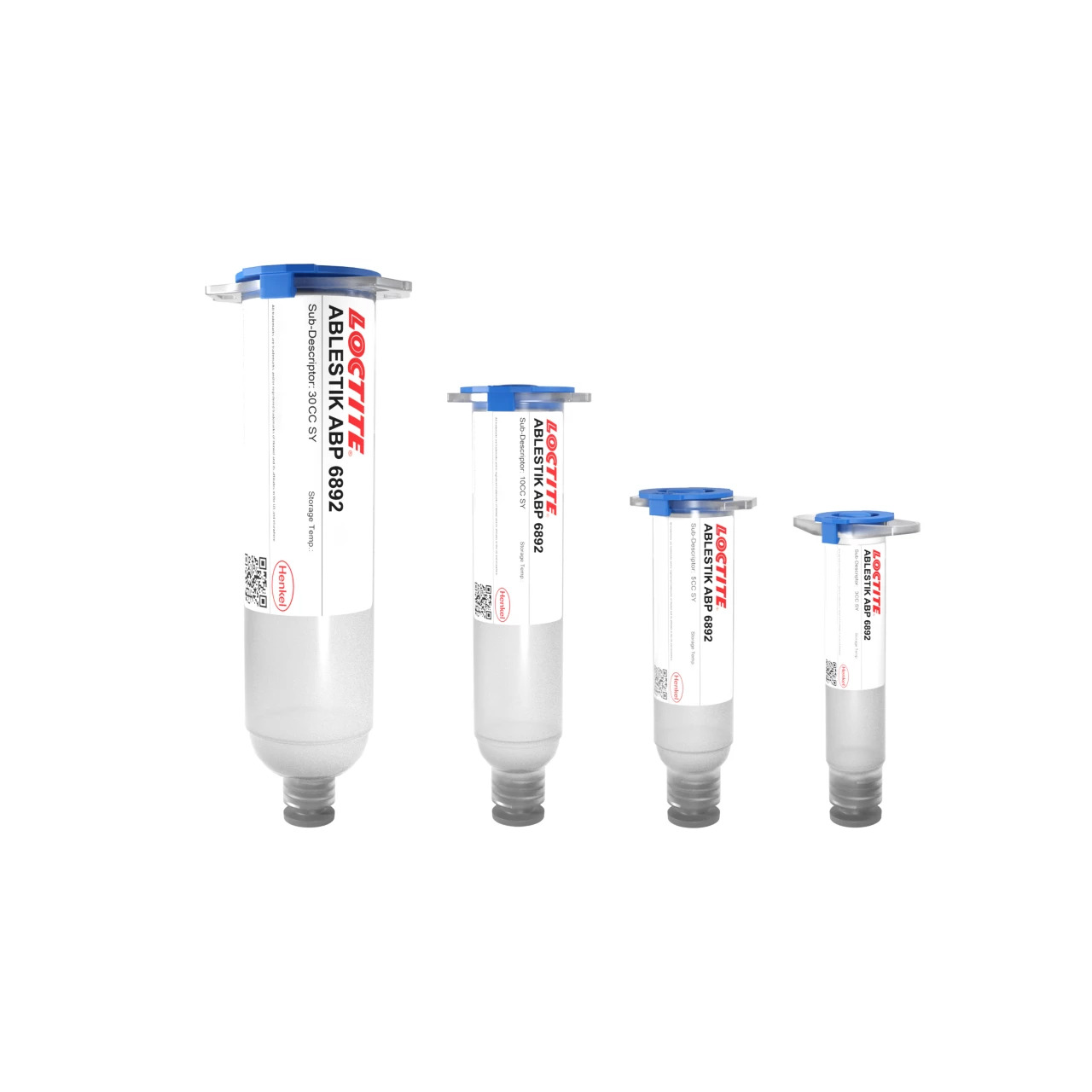LOCTITE ABLESTIK ABP 6892BA
Harmonization Code : 3506.10.00.00 | Prepared glues and other prepared adhesives, not elsewhere specified or included; products suitable for use as glues or adhesives, put up for retail sale as glues or adhesives, not exceeding a net weight of 1 kg
Main features
- Designed for Fingerprint Sensors
- Low stress for ultra thin glass
- Low outgassing and filler free
Product Description
LOCTITE ABLESTIK ABP 6892BA non-conductive die attach paste is designed for applications requiring low stress and robust mechanical properties. A package or device using this material will have a high resistance to delamination and popcorning after multiple exposures to Pb-free solder reflow temperatures. This material provides excellent adhesion to a variety of surfaces.
LOCTITE ABLESTIK ABP 6892BA is a transparent, low-temperature cure BMI acrylate without a filler. This, along with its low stress and low moisture absorption make it ideal for optical applications. It can be used both as a die attach paste but also for component assembly and fingerprint sensors, among other things.
Cure Schedule
- 15 minutes ramp to 80ºC, hold 60 minutes or
- 15 minutes ramp to 130ºC, hold 30 minutes
Technical Specifications
| General Properties | |||||||
| Density (g) | 1 g/cm3 | ||||||
| Physical Properties | |||||||
| Viscosity Viscosity Viscosity is a measurement of a fluid’s resistance to flow. Viscosity is commonly measured in centiPoise (cP). One cP is defined as the viscosity of water and all other viscosities are derived from this base. MPa is another common unit with a 1:1 conversion to cP. A product like honey would have a much higher viscosity -around 10,000 cPs- compared to water. As a result, honey would flow much slower out of a tipped glass than water would. The viscosity of a material can be decreased with an increase in temperature in order to better suit an application | 1,150 mPa.s | ||||||
| Mechanical Properties | |||||||
| |||||||
| Thermal Properties | |||||||
| Glass Transition Temperature (Tg) Glass Transition Temperature (Tg) The glass transition temperature for organic adhesives is a temperature region where the polymers change from glassy and brittle to soft and rubbery. Increasing the temperature further continues the softening process as the viscosity drops too. Temperatures between the glass transition temperature and below the decomposition point of the adhesive are the best region for bonding. The glass-transition temperature Tg of a material characterizes the range of temperatures over which this glass transition occurs. | -11 °C | ||||||





